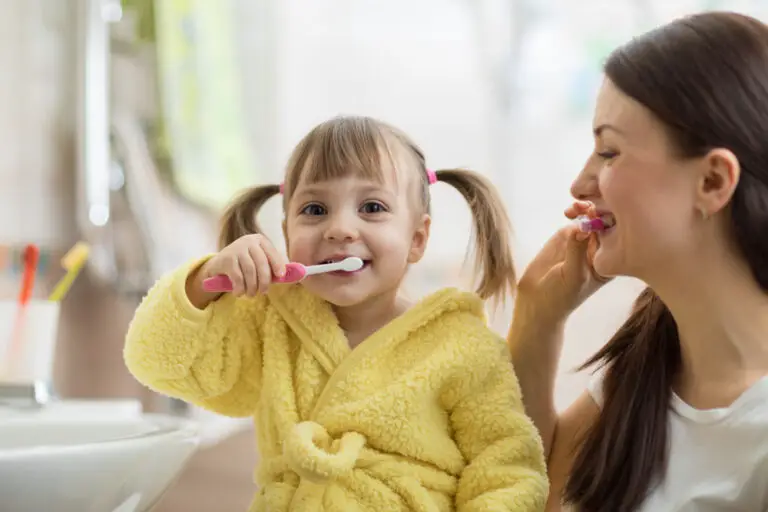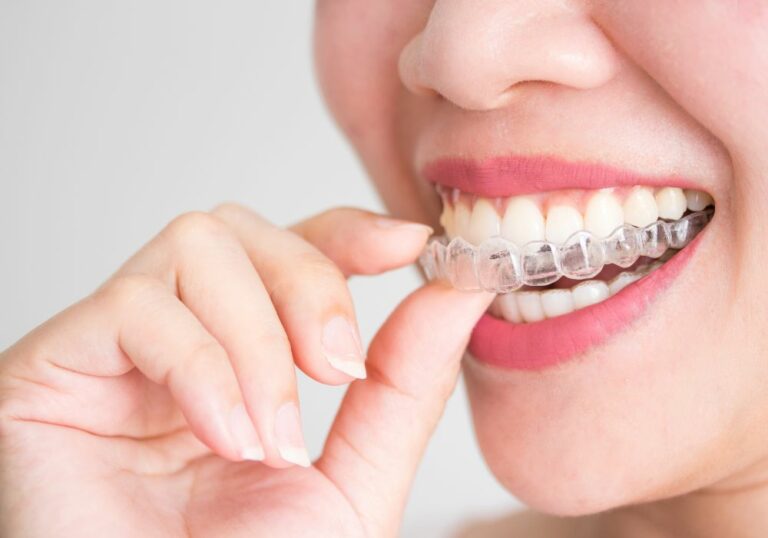Wisdom teeth are the third and final set of molars that most people get in their late teens to early twenties. While some wisdom teeth emerge normally without any issues, it is estimated that over 65% of people have to get their wisdom teeth removed due to problems like impaction, crowding, or abnormal positioning.
When wisdom teeth come in the wrong way or don’t have enough room, they can become impacted. This means the tooth becomes stuck in the jaw bone and cannot fully emerge through the gums. Partially impacted wisdom teeth often cause pain, swelling, infection, and other complications. These issues frequently disrupt normal sleep patterns, especially in younger adults.
In this detailed guide, we will examine the link between wisdom teeth and sleep disturbances, including:
- What causes problematic wisdom teeth
- Signs your wisdom teeth are impacted
- How wisdom teeth lead to sleep issues
- Short-term and long-term consequences
- The most effective treatments and remedies
- Steps for preventing wisdom tooth impaction
- Importance of removal to restore healthy sleep
Understanding how wisdom teeth interference can impair your sleep quality will help you seek treatment faster. Getting ahead of wisdom tooth problems promptly can prevent recurring sleep disruptions.
What Causes Impacted Wisdom Teeth?
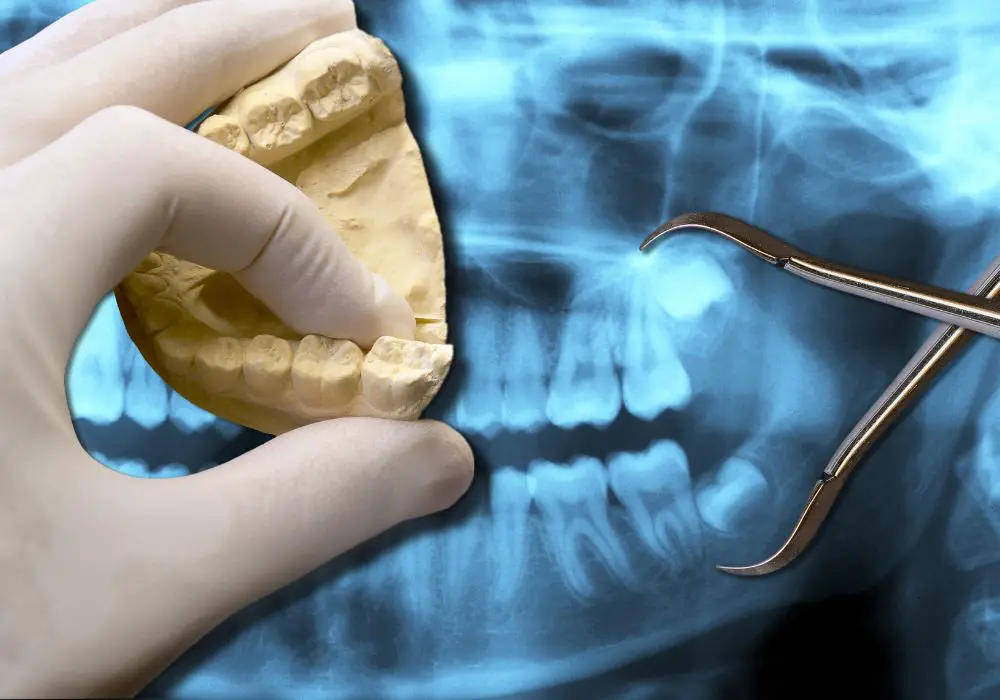
There are several reasons why wisdom teeth frequently become impacted or only partially erupt:
Jaw Size
One major factor is simply not having enough room in the jaw for the wisdom teeth to emerge properly. The jaw stops growing in the late teens, but wisdom teeth develop later. Modern diets with refined foods can contribute to underdeveloped jaw size.
Existing Teeth Spacing
If the 12 year molars or other back teeth are tightly aligned, they may block wisdom teeth from erupting without becoming impacted against them.
Number of Teeth
Having extra teeth in the upper or lower jaw can overcrowd the space, leading wisdom teeth to become stuck.
Unusual Positioning
Wisdom teeth sometimes develop at odd or backward angles, causing impaction against other teeth or the jawbone. The roots may develop first, blocking further emergence.
Gum Tissue Overgrowth
Excess gum tissue can completely cover wisdom teeth that are trying to erupt if there is inadequate space. This traps them under the gums.
Oral Hygiene
Poor brushing and flossing habits can allow plaque buildup to physically block wisdom teeth from erupting through the gums.
These factors cause wisdom teeth to become trapped below the gums or only partially emerge. Incomplete eruption prevents cleaning between the teeth, allowing bacteria to fester and multiply. Infection and swelling result, leading to severe pain and sleep disruption.
Signs Your Wisdom Teeth Are Impacted
It’s important to watch for the tell-tale symptoms of wisdom tooth impaction while they are developing:
- Difficulty opening the jaw as wide – Feeling stiffness or tightness with opening indicates swelling and inflammation that could mean impaction.
- Fluid-filled sacs (pericoronal cysts) – Appear as fluid sacs over erupting wisdom teeth. Show likely impaction.
- Red, swollen, tender gums – Swollen gums that may bleed signal infection and inflammation around partially erupted teeth.
- Bad breath – Can indicate infected tissue, bacteria buildup around trapped wisdom teeth.
- Pain or bite changes – Aching or discomfort around emerging teeth. Biting changes if inflammation is present.
- Referred pain – Wisdom tooth pain can radiate to the jaw, ear, temple, causing headaches.
- Chills, fever, fatigue – Possible infection if wisdom teeth are attempting to erupt through swollen tissue. Requires urgent dental care.
Monitoring for these signs and getting evaluated promptly when they appear are key to treating impaction early and avoiding complications. Next we’ll look at how this leads to sleep disruption.
How Wisdom Teeth Cause Sleep Disruption
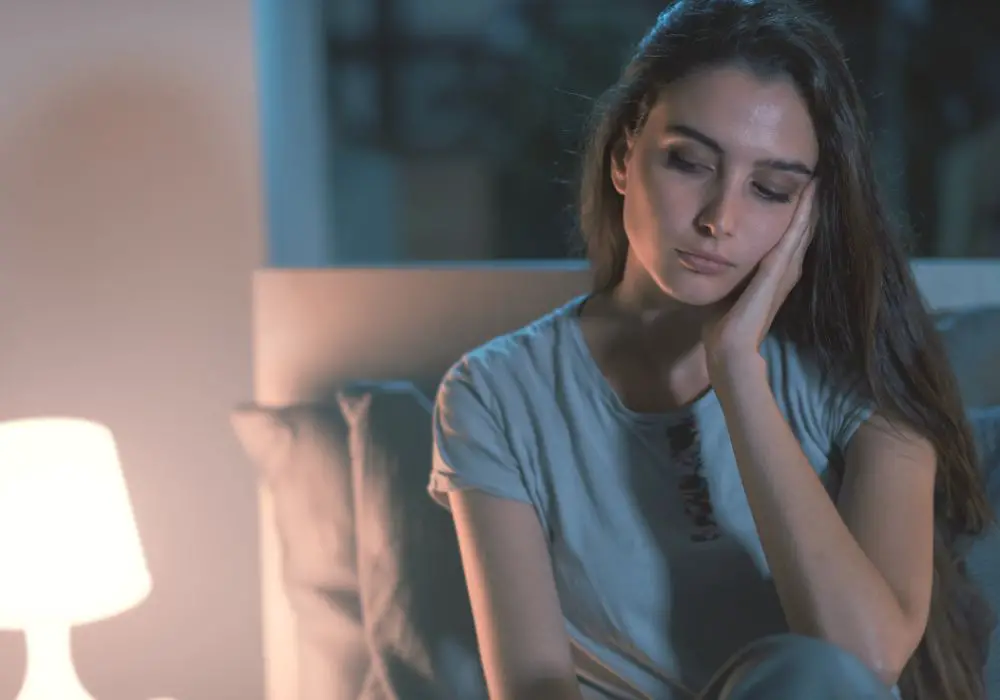
The pain, pressure, inflammation, and infection associated with impacted wisdom teeth frequently disrupt normal sleep in the following ways:
Difficulty Falling Asleep
Throbbing, pounding pain from swollen wisdom teeth keeps the jaw area tender and uncomfortable. Strong discomfort makes it very difficult to fall asleep initially at bedtime.
Frequent Awakenings
Even if sleep is achieved, severe wisdom tooth pain often wakens the individual repeatedly throughout the night. This prevents continuous, uninterrupted sleep.
Impaired Sleep Quality
When wisdom tooth issues do allow broken periods of sleep, the quality of sleep is decreased. Pain keeps the body from reaching deep REM and restorative sleep.
Tossing and Turning
Aching and pain from wisdom teeth results in tossing and turning to try and find relief. This restless sleep prevents peaceful slumber.
Anxiety and Stress
Concerns about wisdom tooth swelling or infection can trigger anxiety. Stress and worry make it harder to relax into sleep.
Jaw Clenching
The discomfort of impacted wisdom teeth leads some people to clench or grind their jaws at night. This adds to pain and tension.
Oral Inflammation
Sore, inflamed gums and tissues surrounding wisdom teeth make for a sensitive, painful mouth. This interferes with comfortable sleep.
As you can see, even a single impacted wisdom tooth can disrupt the sleep cycle night after night. Other health issues often develop as a result.
Short-Term Impacts of Wisdom Tooth Sleep Disruption
When wisdom teeth are causing repeated sleep interruptions, both physical and mental effects may be noticed, including:
- Daytime drowsiness and fatigue that impairs functioning
- Decreased concentration, focus and cognitive performance
- Irritability, mood swings, lack of patience
- Anxiety and exaggerated response to stressors
- Compromised immune system, getting sick often
- Impaired oral hygiene from tooth sensitivity and swelling
- Jaw stiffness, soreness, reduced opening
- Headaches or migraines from poor sleep
- Hormonal changes from altered circadian rhythms
- Increased inflammation or gum disease in the mouth
- Reduced performance at school, work, sports, other activities
- Safety risks from driving tired, lack of focus, etc.
These short-term effects impact quality of life significantly. They signal the need for prompt wisdom tooth treatment to resolve sleep disruption.
Long-Term Impacts of Wisdom Tooth Sleep Disruption
Over months or years, the cumulative effects of chronic wisdom tooth impaction and poor sleep can include:
- Cognitive deficits – memory, concentration and learning problems
- High blood pressure, heart disease, increased disease risk
- Metabolic changes – weight gain, diabetes risk
- Mental health disorders – depression, anxiety, addiction
- Accident or injury risk from impaired function
- Chronic fatigue, headaches, body aches and pain
- Career or school performance decline
- Social isolation, strained relationships
- Financial, legal or other problems
Clearly, persistent wisdom tooth issues demand treatment to avoid these serious long-term consequences. Removing problematic teeth improves sleep and reverses the downward spiral.
Effective Treatments and Remedies
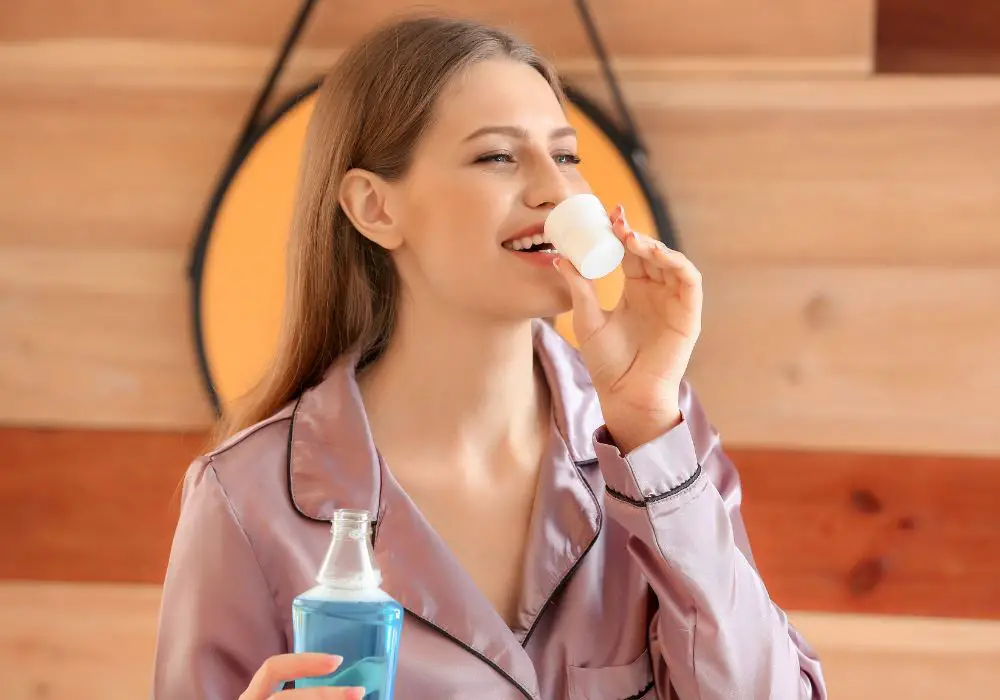
If your wisdom teeth are starting to cause sleep disruptions or significant pain, there are several management options to try for relief:
- Pain relievers – Over-the-counter medications like ibuprofen, acetaminophen or naproxen can temporarily alleviate pain and swelling.
- Antibiotics – If infection is present, a dentist may prescribe antibiotics like amoxicillin or penicillin. Kills bacteria but doesn’t treat impaction.
- Oral rinses – Antiseptic mouthwashes reduce oral bacteria. Salt water rinses soothe inflamed tissues.
- Steroid medication – Powerful corticosteroids like dexamethasone treat pain and swelling for several days.
- Wisdom tooth extraction – Removing impacted teeth through oral surgery. Highly effective permanent solution.
- Cold compresses – Applying ice packs externally over jaw reduces swelling.
- Diet changes – Soft foods only if chewing makes pain worse. Cold foods help inflammation.
- Sleep medications – Short-term sedatives or sleep aids can restore normal sleep cycles.
These treatments offer both temporary symptom relief and long-term resolution. Extracting wisdom teeth is very commonly performed and provides permanent improvement.
Preventing Wisdom Tooth Impaction
While some impaction risk factors are unavoidable, taking proactive steps can help minimize problems:
- Maintain good oral hygiene – Brush and floss thoroughly to avoid plaque obstructing emerging teeth.
- Regular dental exams – Dentist can watch for early signs of impaction to treat sooner.
- Proper nutrition – Diets with sufficient vitamins/minerals support jaw growth.
- Jaw exercises – Activities like chewing gum increase jaw size over time.
- Remove excess teeth – Pulling overcrowding teeth creates space in the jaw.
- Extract early – Removing wisdom teeth before full impaction reduces complications.
Discuss options with your dentist to stay ahead of issues before they disrupt sleep. Monitoring Developing wisdom teeth is key.
Importance of Removal for Healthy Sleep
Given all the risks, removing problematic wisdom teeth is highly advisable for preventing recurrent sleep disruption and related health issues. Extraction leads to:
- Elimination of the source of pain and infection
- Preventing damage from further impaction
- Halting progression of complications
- Reduced risk of gum disease or decay on adjacent teeth
- Relief from jaw stiffness and tension
- Restored ability to open the mouth fully
- Significantly improved sleep quality and duration
- Increased daytime energy and concentration
- Better cognitive functioning and mood
- Decreased anxiety about additional swelling or infection
- Improved oral hygiene without partially hidden teeth
Getting wisdom teeth removed promptly can help avoid short and long term issues stemming from sleeplessness. Consult an oral surgeon about extraction. Be sure to follow post-op instructions for smooth healing.
Conclusion
While wisdom teeth continue developing, they frequently become impacted against adjacent teeth or jaw bone due to lack of space. Partially erupted wisdom teeth often get infected and swollen, leading to severe pain. This frequently disrupts normal sleep patterns, especially for teenagers and young adults.
If wisdom tooth impaction and infection persists for weeks, months or years, the chronic sleep loss takes an exponential toll both physically and mentally. Treatment options range from pain relief to antibiotics to removal. Extracting problematic wisdom teeth provides definitive relief by permanently eliminating the source of pain and infection.
Restoring restful sleep is critical for protecting your health and quality of life. Don’t delay if wisdom teeth are interfering with your sleep – seek evaluation and treatment promptly. With the right dental care, you can sleep easy again!
Frequently Asked Questions
Q: Can partially erupted wisdom teeth cause sleep problems?
A: Yes, partially erupted or impacted wisdom teeth are a major cause of sleep disruption. Bacteria and food easily get trapped around the partially exposed teeth. This causes infection, swelling, and severe pain that interrupts sleep night after night.
Q: How long can wisdom tooth pain impact sleep?
A: Wisdom tooth pain from impaction or eruption can disrupt sleep for weeks, months or even years if left untreated. Many young people tolerate frequent sleep interruptions for extended periods, unaware of the risks. But chronic lack of sleep has cumulative effects that take a real toll on health and well-being.
Q: Can wisdom teeth cause headaches that interfere with sleep?
A: Yes, wisdom teeth can contribute to headaches that impair sleep. When wisdom teeth are impacted or infected, it often radiates pain up the nerve pathways to the jaw, temple and head. Referred pain like headaches is common and tends to worsen at night. Wisdom tooth pain can also trigger headaches from clenching due to the discomfort.
Q: What’s better for sleep – wisdom tooth extraction or antibiotics?
A: Wisdom tooth extraction is more effective for resolving recurrent sleep disruption than antibiotics alone. While antibiotics treat active infections temporarily, the source of impaction remains. Extraction completely removes the problematic wisdom tooth so it can no longer become impacted or get infected. This provides lasting relief night after night.
Q: How soon after wisdom tooth removal can sleep improve?
A: Sleep often begins improving within the first week after wisdom tooth extractions. As the surgical sites heal, swelling diminishes, pain decreases, and sleep is less disrupted. Within two weeks post-op, most patients report improved ability to fall asleep and stay asleep without issues from the extracted teeth. Removing the source of pain leads to better rest.

